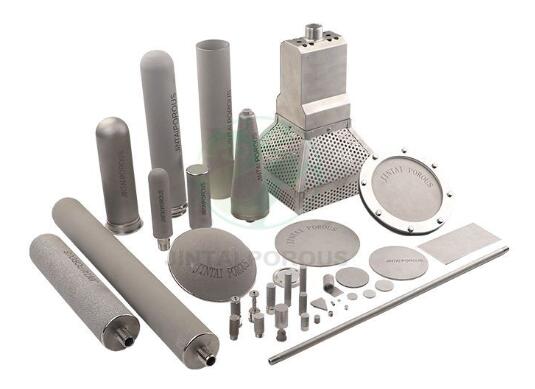
July 10, 2024
Sintered porous metal filters are essential components in various industrial applications, providing efficient filtration and separation of liquids and gases. These filters are made by fusing metal particles through a process called sintering, resulting in a porous structure that offers high mechanical strength and chemical resistance. This article explores the different types of sintered porous metal filters and their applications.

Stainless steel is one of the most common materials used for sintered porous metal filters. These filters are known for their durability, corrosion resistance, and high-temperature tolerance.
Application: Stainless steel filters are widely used in chemical processing, food and beverage production, and pharmaceutical industries. They are ideal for applications requiring robust filtration in harsh environments.
Advantages: These filters offer excellent mechanical strength, making them suitable for high-pressure applications. They also provide good resistance to oxidation and corrosion, ensuring long service life and reliability.
Bronze filters are another popular type of sintered porous metal filters, known for their excellent thermal conductivity and corrosion resistance.
Application: Bronze filters are commonly used in hydraulic systems, fuel systems, and air filtration applications. They are also used in bearing applications due to their self-lubricating properties.
Advantages: Bronze filters offer good wear resistance and are effective in filtering fine particles. Their thermal conductivity makes them suitable for applications involving heat transfer.
Nickel filters are chosen for their exceptional chemical resistance and high-temperature stability. They are used in environments where other materials might fail due to chemical attack or extreme temperatures.
Application: These filters are used in petrochemical processing, aerospace, and nuclear industries. They are ideal for applications involving corrosive chemicals and high temperatures.
Advantages: Nickel filters provide excellent resistance to corrosion and oxidation. They maintain their mechanical properties at high temperatures, making them suitable for demanding applications.
Titanium filters are known for their high strength-to-weight ratio, excellent corrosion resistance, and biocompatibility. These properties make them suitable for a range of specialized applications.
Application: Titanium filters are used in medical devices, marine environments, and chemical processing. They are also used in the production of high-purity products in the semiconductor industry.
Advantages: Titanium filters offer outstanding corrosion resistance, even in harsh environments such as seawater and acidic conditions. They are lightweight yet strong, making them easy to handle and install.
Hastelloy is a nickel-based alloy known for its superior resistance to corrosion, particularly in oxidizing and reducing environments. Hastelloy filters are used in highly corrosive conditions.
Application: These filters are used in chemical processing, pollution control, and waste treatment industries. They are suitable for applications involving aggressive chemicals and high temperatures.
Advantages: Hastelloy filters provide exceptional corrosion resistance and mechanical strength. They perform well in both oxidizing and reducing environments, making them versatile for various industrial applications.
Copper filters are valued for their excellent thermal and electrical conductivity. They are used in applications where heat transfer and electrical conductivity are critical.
Application: Copper filters are used in electronics, power generation, and heat exchanger systems. They are also used in cooling systems and other applications requiring efficient heat dissipation.
Advantages: Copper filters offer good mechanical strength and are effective in filtering fine particles. Their thermal and electrical conductivity makes them suitable for specialized applications.
Sintered porous metal filters come in various types, each offering unique advantages and applications. Stainless steel, bronze, nickel, titanium, Hastelloy, and copper filters provide solutions for different industrial needs, from robust chemical resistance to high-temperature stability and thermal conductivity. For more information or to source high-quality sintered porous metal filters, contact us for expert guidance and assistance. As a trusted supplier, we are committed to providing the best filtration solutions tailored to your specific requirements.